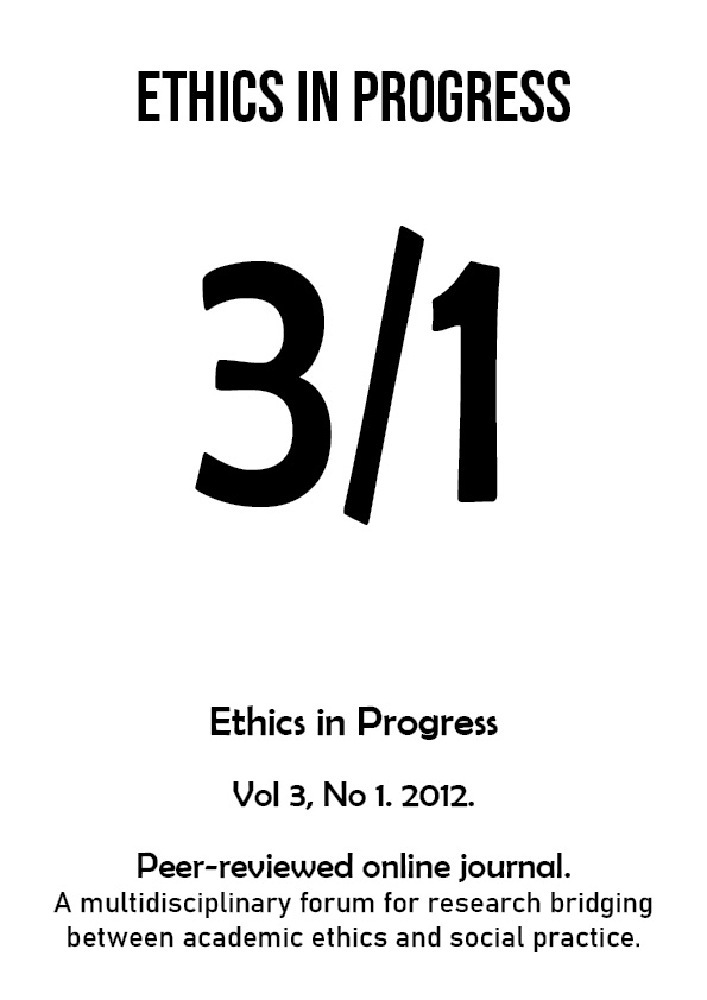Abstract
There has been a great deal of discussion in the recent philosophical literature of the relationship between the minimalist theory of truth and the expressivist metaethical theory. One group of philosophers contends that minimalism and expressivism are compatible, the other group contends that such theories are incompatible. Following Simon Blackburn (manuscript), I will call the former position ‘compatibilism’ and the latter position‘incompatiblism.’ Even those compatibilist philosophers who hold that there is no conflict or tension between these two theories—minimalism and expressivism—typically think that some revision of minimalism is required to accommodate expressivism. The claim that there is such an incompatibility, I will argue, is based on a misunderstanding of the historical roots of expressivism, the motivations behind the expressivist theory, and the essential commitments of expressivism. I will present an account of the expressivist theory that is clearly consistent with minimalism.References
Ayer, A. J. 1936. Language, Truth, and Logic. London: Dover.
Blackburn, S. 1971. Moral Realism, in Blackburn 1993.
Blackburn, S. Spreading the Word. Oxford: Oxford University Press.
Blackburn, S. 1986. Supervenience Revisited, in Blackburn 1993.
Blackburn, S. 1988. How to be an Ethical Antirealist, in S. Darwall, A. Gibbard, and P. Railton, 1997: 167-178.
Blackburn, S. 1993. Essays in Quasi-Realism. Oxford: Oxford University Press.
Blackburn, S. 1998. Ruling Passions: A Theory of Practical Reason. Oxford: Clarendon Press.
Boghossian, P. 1990. The Status of Content. Philosophical Review 99: 157-84.
Chrisman, M. 2005. Thinking How to Live. Ethics 115: 406-411.
Chrisman, M. [forthcoming, 2012]. Expressivism, Inferentialism, and Saving the Debate. Philosophy and Phenomenological Research.
Divers, J. and Miller, A. 1994. Why Expressivists about Value Should Not Love Minimalism about Truth. Analysis 54: 12-19.
Darwall, S., Allan G., and Railton P. 1997. Moral Discourse and Practice: Some Philosophical Approaches. New York: Oxford University Press.
Dreier, J. 2004. Meta-ethics and the Problem of Creeping Minimalism. Philosophical Perspectives 18: 23-44.
Gibbard, A. 1990. Wise Choices, Apt Feelings. Oxford: Oxford University Press.
Gibbard, A. 2003b. Thinking How to Live. Cambridge, Mass.: Harvard University Press.
Harman, G. 1977. The Nature of Morality. New York: Oxford University Press.
Horwich, P. 1993. Gibbard’s Theory of Norms. Philosophy and Public Affairs 22: 67-78.
Horwich, P. 1994. The Essence of Expressivism. Analysis 45: 19-20.
Horwich, P. 1998. Truth. Oxford: Oxford University Press.
Hume, D. 2000. A Treatise of Human Nature. Ed. by D. F. Norton and M. J. Norton. Oxford: Oxford University Press.
Lenman, J. 2003. Disciplined Syntacticism and Moral Expressivism. Philosophy and Phenomenological Research 66: 32-57.
Mackie, J. L. 1977. Ethics: Inventing Right and Wrong. London, England: PenguinBooks.
Shafer-Landau, R. 2003. Moral Realism: A Defence. Oxford: Clarendon Press.
Stevenson, Ch. 1937. The Emotive Theory of Ethical Terms. Mind 46: 14-31.
Sturgeon, N. 1985. Moral Explanations, in Shafer-Landau and Cuneo 2007: 337-352.
Wright, C. 1985. Spreading the Word. Mind 94: 310-19.
Wright, C. 1992. Truth and Objectivity. Cambridge, Mass.: Harvard University Press.
Wright, C. 1996. Precise of Truth and Objectivity. Philosophy and Phenomenological Research 56: 863-868.




